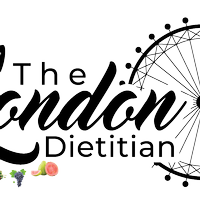Sometimes you may be losing weight or having difficulty gaining weight and generic advice such as ‘just eat more’ is not as helpful as many people think it is. Whatever the reason behind your low weight, working towards weight gain is much harder than many people realise. The advice below will help guide you in making the most of your meals without increasing the bulk! These techniques are called ‘food fortification’ whereby we try to increase the nutritional value of foods (i.e., the calories and the protein), whilst avoiding an increase in the volume of food. This is especially important if you have a small appetite.
Some of the advice below may appear contradictory to what you normally hear about healthy eating. Please remember if you have lost a significant amount of weight unintentionally in the last 3-6 months, ongoing weight loss is more of risk to your health than incorporating the below into your diet-these foods are for a temporary period to help you regain some weight.
Not all of the below need to be followed-pick and choose what is the most appropriate for you and your medical condition. Try and add all of the below to all meals consumed throughout the day.
Cheese (Always use full fat-versions):
Add to soups, mash potato, scrambled eggs, omelettes, vegetable and pasta dishes.
If you find the taste of cheese too strong, consider using a very mild flavoured cheese such as emmental or mozzarella.
Double cream:
Add to eggs, soups, porridge, smoothies, milkshakes, creamy meals such as lasagne/shepherd’s pie etc.
Dried milk powder:
Add to eggs, milk, soups, porridge, yoghurts, custard, mash potato, milkshakes, creamy meals, shepherd’s pie etc.
When using to make fortified milk: Decant 1 pint of full fat milk into a jug and add 4 tbsp of milk powder to the pint- this is known as 'fortified milk'. Store in fridge and add to soups, cereal, porridge, scrambled eggs, cream-based meals, teas and coffees, smoothies, hot chocolate etc.
Condensed milk:
Add to rice pudding/porridge/semolina
Butter:
Add to bread/crackers/creamy soups/rice and oat cakes/meals/jacket potatoes.
Coconut cream/milk:
Use this as alternative to water when cooking rice and allowing it to soak into the rice. The coconut flavour will usually be very mild.
Olive oil:
Add to meals/drizzle on toast topped with cheese/add to salads/add to jacket potato.
Avocado:
Add to toast with scrambled eggs/crumpets/salads/smoothies/make guacamole and use as a dip.
Thick-sliced, seeded bread:
Choose seeded bread as an alternative to white or wholemeal bread.
Nut butters:
Add to porridge/stews/ toast/ crackers/ use as a dip/add to rice and oat cakes/add to smoothies.
Top Tips
Poor appetite?
- Appetite can be better on some days and not so good on there days- try and make the most of times when your appetite is at its best and maximise what you can eat during these times.
- Stock up on your favourite foods than you can easily have when you do have an appetite.
- Try and mobilise to help stimulate the appetite.
Getting full too quickly?
- Incorporate a ‘little and often’ approach to eating if you feel you cannot have 3 regular meals.
- Avoid having drinks with meals as thy can fill you up.
- Avoid filling up on loads of fruit and vegetables as they are low in calories. If you do want these, fortify them with the options listed above.
Better with drinking rather than eating?
- If you have soup, opt for cream based versions rather than broth based as the former will have more nutrition.
- Blend full sugar fizzy drinks with ice cream. This can also be frozen into ice-pops.
- Make up all hot drinks with fortified full fat milk.
- Experiment with smoothies/milkshakes at home- you can mix ice-cream, fortified milk, full fat yoghurt and fruit together and blend.
- If unable to have dairy, opt for soya milk rather than other alternatives as it has the most protein.
- Powdered supplements such as complan and build up can be brought over the counter from pharmacies and supermarkets. Alternatively, you can contact your GP to see if you are suitable for a prescription of nutritional supplements.

